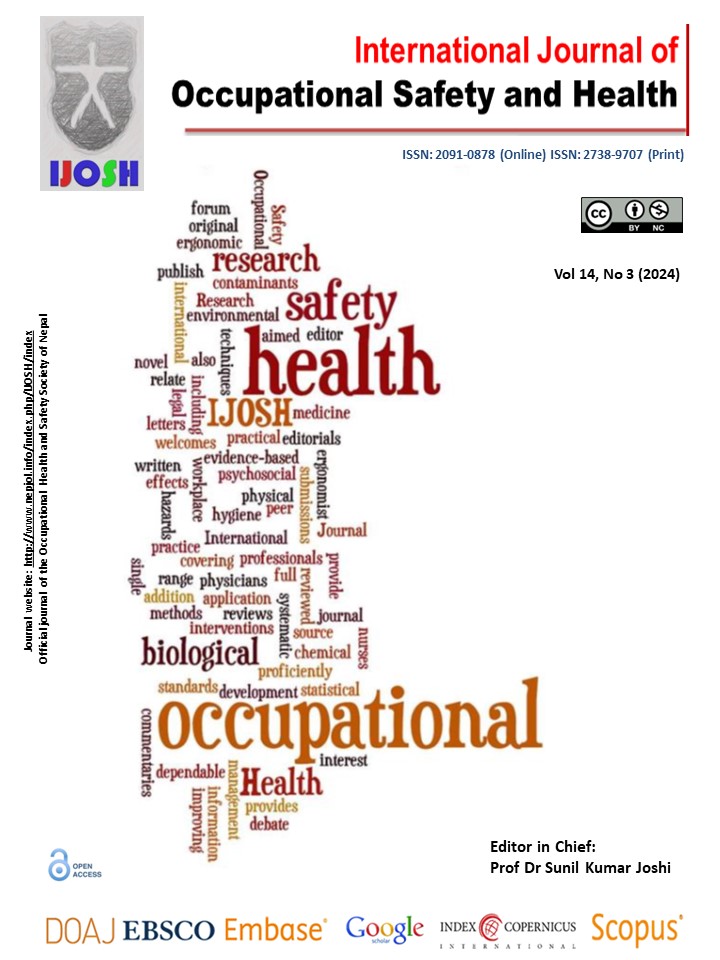The effect of noise reduction on work-related stress: a quasi-experimental study on weaving workers exposed to high levels of noise
DOI:
https://doi.org/10.3126/ijosh.v14i3.54624Keywords:
noise intensity, sound-absorbing materials, weaving, work-related stressAbstract
Introduction: The textile industry is one industry in the world with a high risk in its production process. The operation of weaving machines generates high levels of noise, which can cause various adverse effects on workers' health, especially work-related stress. IT Co. Ltd., one of the largest textile companies in Solo, Central Java, since 1975, has not been able to overcome the problem of the high noise intensity, especially in the weaving production room.
Methods: This study aims to determine the effect of reducing noise exposure on work-related stress by installing sound-absorbing materials from coconut fiber waste. The study was carried out in 2 phases. The first phase measured noise intensity and work stress before the intervention. The second phase was carried out for 12 measurements daily after installing sound-absorbing material from coconut fiber waste.
Results: Installing sound-absorbing material from the coconut fiber waste on the second to the thirteenth day positively reduced the average noise intensity and work-related stress score compared to the first day before the intervention.
Conclusion: The study showed a significant difference in the average noise intensity and work-related stress before and after installing the sound-absorbing materials on 13 days of measurement.
Downloads
Downloads
Published
How to Cite
Issue
Section
License
Copyright (c) 2024 The Author(s)

This work is licensed under a Creative Commons Attribution-NonCommercial 4.0 International License.
This license enables reusers to distribute, remix, adapt, and build upon the material in any medium or format for noncommercial purposes only, and only so long as attribution is given to the creator.





